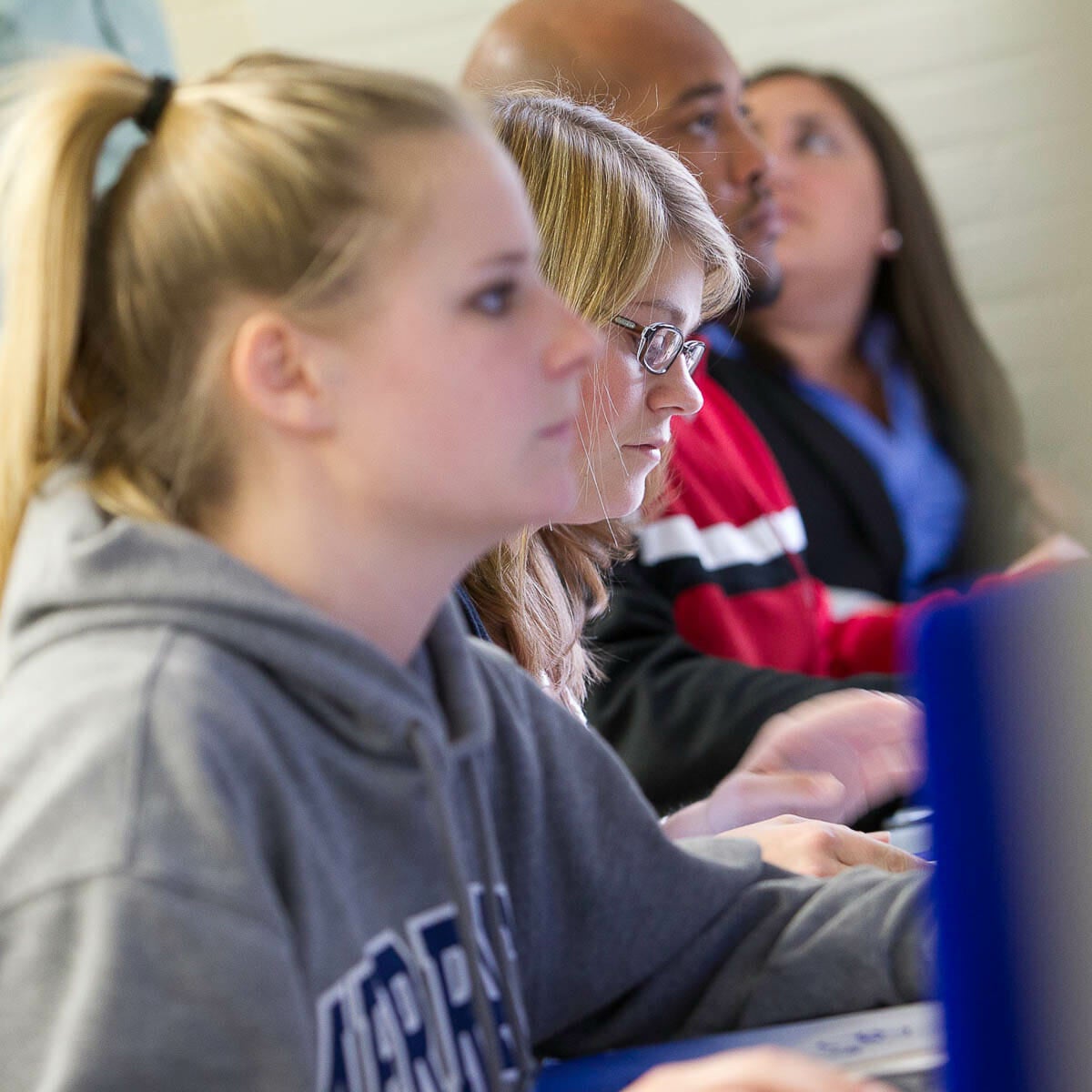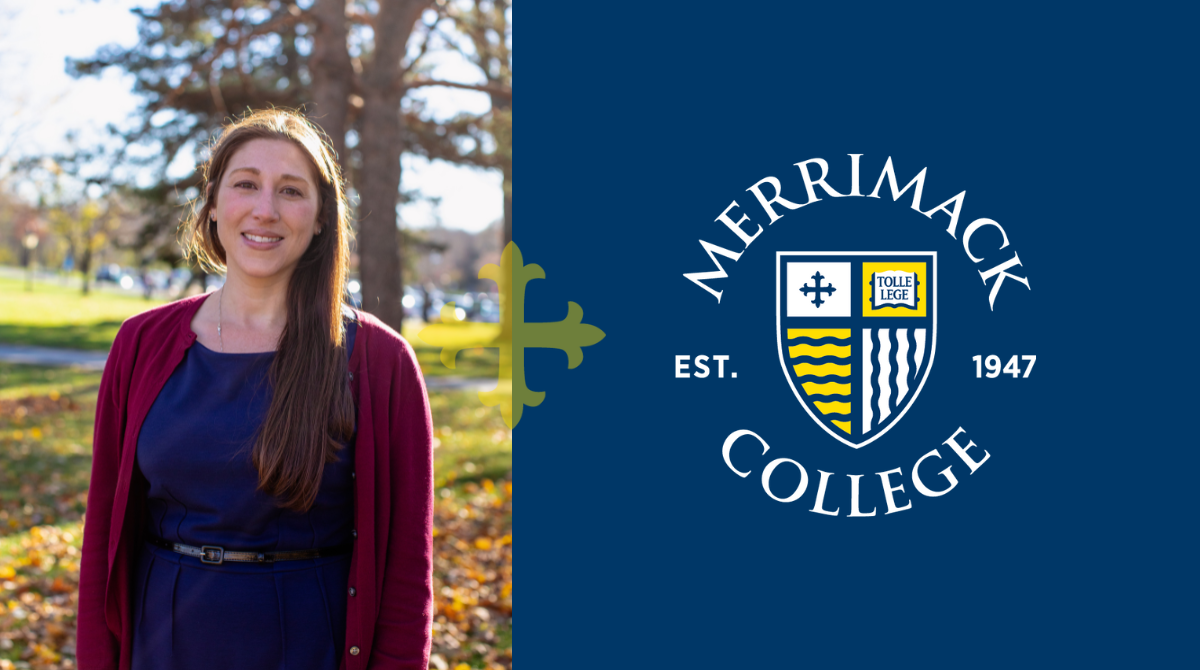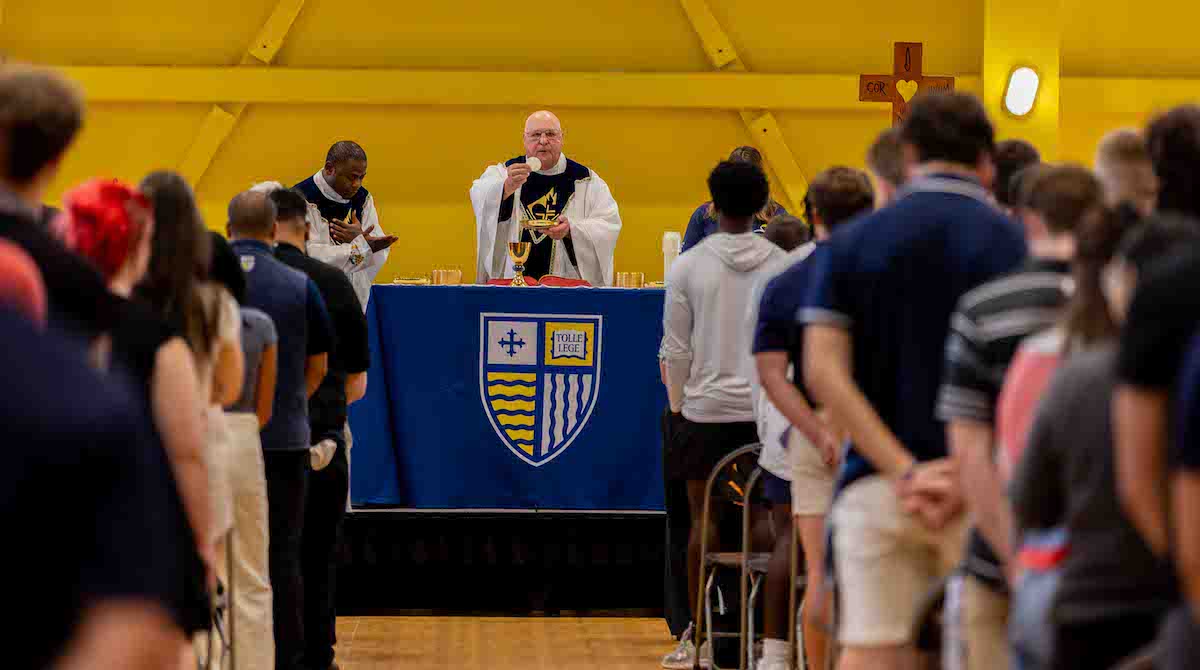Just 10 grants were awarded, and Merrimack College was the only historically liberal arts college to receive one, said College of Science & Engineering Department Dean Mary Noonan.
“It’s pretty prestigious to have a liberal arts college in that company,” Noonan said.
Civil and Mechanical Engineering Associate Professor Marc Veletzos is the principal investigator for the grant.
President Obama’s administration has set a goal of helping schools graduate 1 million students in STEM-related fields, including engineering and computer science.
Graduate 10k+ is a five-year program and each of the projects picked for funding is targeting issues that can derail the careers of engineering and computer science students in their first or second years of undergraduate study, according to the National Science Foundation.
Schools awarded grants by the NSF to study various issues include California State University Monterey Bay, Cornell University, University of Portland, Syracuse University and University of Texas at .
“We’re excited about the range of projects and their potential for moving the needle on producing skilled and capable graduates in these fields,” NSF Education and Human Resources Director Joan Ferrini-Mundy said in a statement.
Implementation of Merrimack’s Foundations for STEM Success program began with an intensive two-week bridge program over the summer, to foster mathematical skills among freshmen and offer them some exposure to their planned careers.
“They went on tours, field trips; they brushed up on mathematics to get ready for the school year,” Noonan said.
The grant funding provides peer mentoring to 104 students in the department.
The mentors are helping new students acclimate to college’s social life but also offer a support system for academics, Noonan said. The new students will hopefully become mentors next year.
As part of the grant, about 33 freshmen are are living together in a STEM affinity community and have access to eight hours of free tutoring in math and engineering Sundays-Thursdays. The tutoring goes above and beyond what’s offered at the math center.
The STEM community provides a social bonding experience for students, who have gone on field trips to such sites as iRobotics and to play laser tag.
“We researched and found having a nurturing, supportive environment is what has been proven to be successful for students to get through their different majors,” Noonan said.
The program includes a gateway class that shows students the real-world value calculus has in relation to the engineering field.
Additionally, all 104 students in the program meet for an hour on Fridays and break into interdisciplinary groups building wind turbines, Noonan said.
“It’s really pretty unique, all the stuff we are doing,” she said.
Learn more about the NSF program, known as the Innovation Through Engineering and Computer Science (iTEC) program, for first year students by visiting merrimack.edu/nsf





